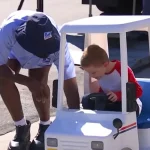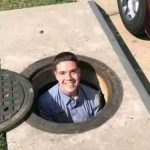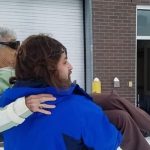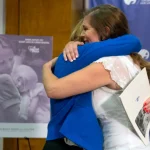Walker’s Bench: How One Retired Mechanic’s Simple Acts of Kindness Built a Community

“My name’s Walker. I’m 78. Retired mechanic. No kids. Just me, my little apartment above the laundromat… and a shaky pair of hands.”
Twice a week, Walker would sit on a cold, worn bus stop bench, sipping tea from a thermos. His routine was simple, peaceful, though he didn’t have much. A quiet man with few belongings, he never expected much, but he gave what he could—his time.
Then, one winter day, a teenage girl and her little brother started showing up at the bus stop. They looked scared, hungry, and exhausted, their eyes filled with a quiet desperation. They didn’t ask for anything. They just sat there, hoping to be left alone. But Walker, noticing their tired faces, didn’t turn away.
He offered them tea from his thermos, and they took it—warmth in both their hands and hearts. When the little brother’s toy broke, Walker didn’t say much; he just reached into his pocket, pulled out a paperclip, and fixed it with the skill of someone who’d spent years with his hands. He didn’t ask questions, didn’t push for answers. He just showed up. Every week. Every time.
As the weeks went by, more kids began to appear. And somehow, the grumpy shop owner who always yelled at the kids started smiling at them. The bus driver, who usually ignored their struggles, began to offer them small acts of kindness. A quiet community was slowly being built around that old, humble bench.
Months later, after Walker had fallen and ended up in the hospital, Melanie—now a little older, a little stronger—came to see him. She brought with her a payment for his medical bill. She didn’t hesitate, just handed it over. With a soft smile, she said, “You fixed me when no one else saw I was broken.”
When Walker came back home, something had changed. The bench was freshly painted. It was stocked with tea, bus tickets, paper, and pencils. There was a note attached:
“For anyone who needs to sit. Or talk. Or just be seen. – Melanie & Leo (and the bench crew)”
Walker never built shelters or started charities. He never sought recognition. He simply showed up, twice a week, offering the most important thing: his presence. And in doing so, he created something that changed everything. A place where kids could be seen, heard, and supported, just by someone being there—showing up.











